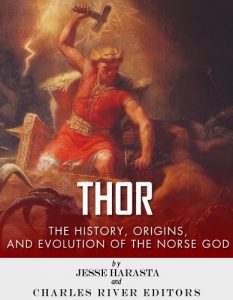*Includes pictures
*Includes a Bibliography for further reading.
*Includes a Table of Contents
"Of the hundreds of peoples that lived and flourished in native North America, few have been so consistently misrepresented as the Apacheans of Arizona and New Mexico. Glorified by novelists, sensationalized by historians, and distorted beyond credulity by commercial film makers, the popular image of 'the Apache' - a brutish, terrifying semi-human bent upon wanton death and destruction - is almost entirely a product of irresponsible caricature and exaggeration...." – Keith Basso, anthropologist.
From the “Trail of Tears” to Wounded Knee and Little Bighorn, the narrative of American history is incomplete without the inclusion of the Native Americans that lived on the continent before European settlers arrived in the 16th and 17th centuries. Since the first contact between natives and settlers, tribes like the Sioux, Cherokee, and Navajo have both fascinated and perplexed outsiders with their history, language, and culture. In Charles River Editors’ Native American Tribes series, readers can get caught up to speed on the history and culture of North America’s most famous native tribes in the time it takes to finish a commute, while learning interesting facts long forgotten or never known.
Among all the Native American tribes, the Spanish, Mexicans, and Americans learned the hard way that the warriors of the Apache were among the fiercest in North America. Based in the Southwest, the Apache fought all three in Mexico and the American Southwest, engaging in seasonal raids for so many centuries that the Apache struck fear into the hearts of all their neighbors.
Given the group’s reputation, it’s fitting that they are inextricably associated with one of their most famous leaders, Geronimo. Descendants of people killed by “hostile” Apache certainly considered warriors like Geronimo to be murderers and thieves whose cultures and societies held no redeeming values, and even today, many Americans associate the name Geronimo with a war cry. The name Geronimo actually came about because of a battle he fought against the Mexicans.
Over time, however, the historical perception of the relationship between America and Native tribes changed drastically. With that, Geronimo was viewed in a far different light, as one of a number of Native American leaders who resisted the U.S. and Mexican governments when settlers began to push onto their traditional homelands. Like the majority of Native American groups, the Apache were eventually vanquished and displaced by America’s westward push, and Geronimo became an icon for eluding capture for so long.
Native American Tribes: The History and Culture of the Apache comprehensively covers the culture and history of the famous group, profiling their origins, their history, and their lasting legacy. Along with pictures of important people, places, and events, you will learn about the Apache like you never have before, in no time at all.
*Includes a Bibliography for further reading.
*Includes a Table of Contents
"Of the hundreds of peoples that lived and flourished in native North America, few have been so consistently misrepresented as the Apacheans of Arizona and New Mexico. Glorified by novelists, sensationalized by historians, and distorted beyond credulity by commercial film makers, the popular image of 'the Apache' - a brutish, terrifying semi-human bent upon wanton death and destruction - is almost entirely a product of irresponsible caricature and exaggeration...." – Keith Basso, anthropologist.
From the “Trail of Tears” to Wounded Knee and Little Bighorn, the narrative of American history is incomplete without the inclusion of the Native Americans that lived on the continent before European settlers arrived in the 16th and 17th centuries. Since the first contact between natives and settlers, tribes like the Sioux, Cherokee, and Navajo have both fascinated and perplexed outsiders with their history, language, and culture. In Charles River Editors’ Native American Tribes series, readers can get caught up to speed on the history and culture of North America’s most famous native tribes in the time it takes to finish a commute, while learning interesting facts long forgotten or never known.
Among all the Native American tribes, the Spanish, Mexicans, and Americans learned the hard way that the warriors of the Apache were among the fiercest in North America. Based in the Southwest, the Apache fought all three in Mexico and the American Southwest, engaging in seasonal raids for so many centuries that the Apache struck fear into the hearts of all their neighbors.
Given the group’s reputation, it’s fitting that they are inextricably associated with one of their most famous leaders, Geronimo. Descendants of people killed by “hostile” Apache certainly considered warriors like Geronimo to be murderers and thieves whose cultures and societies held no redeeming values, and even today, many Americans associate the name Geronimo with a war cry. The name Geronimo actually came about because of a battle he fought against the Mexicans.
Over time, however, the historical perception of the relationship between America and Native tribes changed drastically. With that, Geronimo was viewed in a far different light, as one of a number of Native American leaders who resisted the U.S. and Mexican governments when settlers began to push onto their traditional homelands. Like the majority of Native American groups, the Apache were eventually vanquished and displaced by America’s westward push, and Geronimo became an icon for eluding capture for so long.
Native American Tribes: The History and Culture of the Apache comprehensively covers the culture and history of the famous group, profiling their origins, their history, and their lasting legacy. Along with pictures of important people, places, and events, you will learn about the Apache like you never have before, in no time at all.












